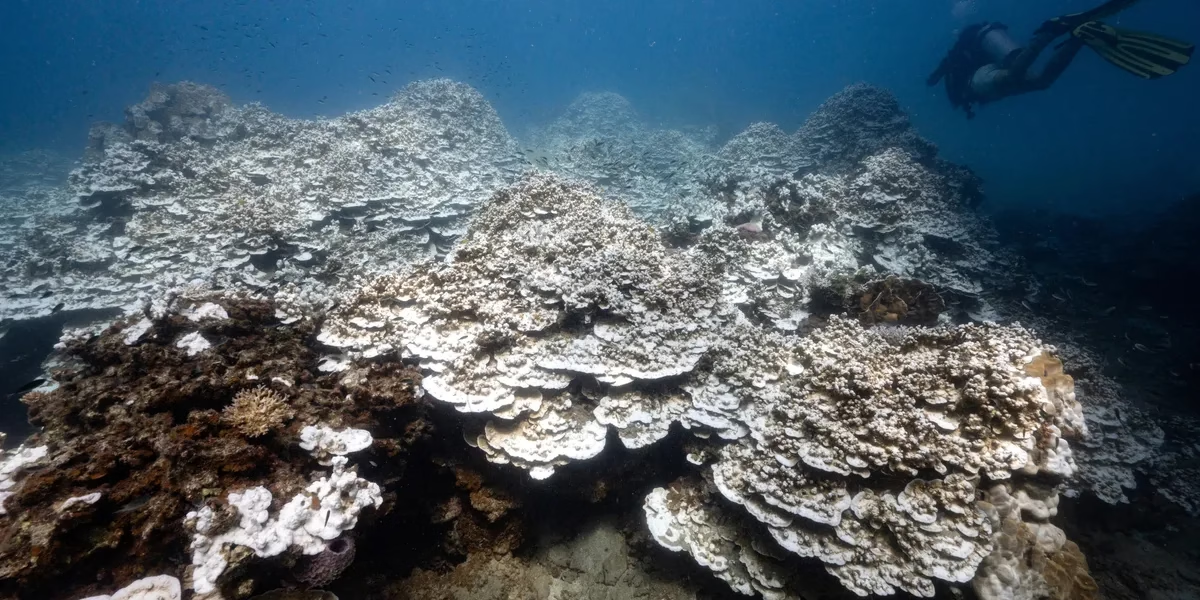Global coral bleaching has reached unprecedented levels, with approximately 84% of the world’s coral reef ecosystems affected. This marks the most extensive coral bleaching incident in recorded history, primarily driven by elevated ocean temperatures linked to human-induced climate change.
Unprecedented Scale of Coral Bleaching
The ongoing event, which began in February 2023, has been officially recognized by the International Coral Reef Initiative (ICRI) as the fourth global bleaching event. It surpasses the previous 2014-2017 event, which impacted roughly two-thirds of global reefs. Coral reefs in at least 82 nations have experienced significant thermal stress, leading to widespread bleaching.
Implications for Marine Biodiversity
Coral reefs are vital to marine biodiversity, providing habitat and shelter for many marine organisms. The extensive bleaching threatens the survival of numerous marine species and disrupts the balance of ocean ecosystems. The loss of coral reefs also impacts coastal communities that rely on them for food, tourism, and protection against storm surges.
Urgent Need for Climate Action
Scientists emphasize the urgent need to address climate change to prevent further damage to coral reefs. Reducing greenhouse gas emissions and implementing sustainable practices are critical steps in mitigating the effects of global warming on marine ecosystems. Conservation efforts and international cooperation are essential to protect and restore coral reefs for future generations.
For more information on the global coral bleaching event and efforts to combat climate change, visit HorizonFeeds.




